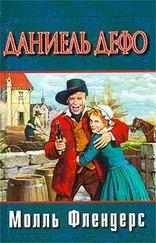Даниэль Дефо - History of the Plague in London
Здесь есть возможность читать онлайн «Даниэль Дефо - History of the Plague in London» весь текст электронной книги совершенно бесплатно (целиком полную версию без сокращений). В некоторых случаях можно слушать аудио, скачать через торрент в формате fb2 и присутствует краткое содержание. Год выпуска: 2014, Издательство: epubBooks Classics, Жанр: Историческая проза, на английском языке. Описание произведения, (предисловие) а так же отзывы посетителей доступны на портале библиотеки ЛибКат.
- Название:History of the Plague in London
- Автор:
- Издательство:epubBooks Classics
- Жанр:
- Год:2014
- ISBN:нет данных
- Рейтинг книги:4 / 5. Голосов: 1
-
Избранное:Добавить в избранное
- Отзывы:
-
Ваша оценка:
- 80
- 1
- 2
- 3
- 4
- 5
History of the Plague in London: краткое содержание, описание и аннотация
Предлагаем к чтению аннотацию, описание, краткое содержание или предисловие (зависит от того, что написал сам автор книги «History of the Plague in London»). Если вы не нашли необходимую информацию о книге — напишите в комментариях, мы постараемся отыскать её.
History of the Plague in London — читать онлайн бесплатно полную книгу (весь текст) целиком
Ниже представлен текст книги, разбитый по страницам. Система сохранения места последней прочитанной страницы, позволяет с удобством читать онлайн бесплатно книгу «History of the Plague in London», без необходимости каждый раз заново искать на чём Вы остановились. Поставьте закладку, и сможете в любой момент перейти на страницу, на которой закончили чтение.
Интервал:
Закладка:
Indeed, the work was not of such a nature as to allow them leisure to take an exact tale [156] A count.
of the dead bodies, which were all huddled together in the dark into a pit; which pit, or trench, no man could come nigh but at the utmost peril. I have observed often that in the parishes of Aldgate, Cripplegate, Whitechapel, and Stepney, there were five, six, seven, and eight hundred in a week in the bills; whereas, if we may believe the opinion of those that lived in the city all the time, as well as I, there died sometimes two thousand a week in those parishes. And I saw it under the hand of one that made as strict an examination as he could, that there really died a hundred thousand people of the plague in it that one year; whereas, in the bills, the article of the plague was but 68,590.
If I may be allowed to give my opinion, by what I saw with my eyes, and heard from other people that were eyewitnesses, I do verily believe the same; viz., that there died at least a hundred thousand of the plague only, besides other distempers, and besides those which died in the fields and highways and secret places, out of the compass [157] Range, limits.
of the communication, as it was called, and who were not put down in the bills, though they really belonged to the body of the inhabitants. It was known to us all that abundance of poor despairing creatures who had the distemper upon them, and were grown stupid or melancholy by their misery (as many were), wandered away into the fields and woods, and into secret uncouth [158] Unknown.
places, almost anywhere, to creep into a bush or hedge, and die.
The inhabitants of the villages adjacent would in pity carry them food, and set it at a distance, that they might fetch it if they were able; and sometimes they were not able. And the next time they went they would find the poor wretches lie [159] Lying.
dead, and the food untouched. The number of these miserable objects were [160] Was.
many; and I know so many that perished thus, and so exactly where, that I believe I could go to the very place, and dig their bones up still; [161] Notice this skillful touch to give verisimilitude to the narrative.
for the country people would go and dig a hole at a distance from them, and then, with long poles and hooks at the end of them, drag the bodies into these pits, and then throw the earth in form, as far as they could cast it, to cover them, taking notice how the wind blew, and so come on that side which the seamen call "to windward," that the scent of the bodies might blow from them. And thus great numbers went out of the world who were never known, or any account of them taken, as well within the bills of mortality as without.
This indeed I had, in the main, only from the relation of others; for I seldom walked into the fields, [162] Country.
except towards Bethnal Green and Hackney, or as hereafter. But when I did walk, I always saw a great many poor wanderers at a distance, but I could know little of their cases; for, whether it were in the street or in the fields, if we had seen anybody coming, it was a general method to walk away. Yet I believe the account is exactly true.
As this puts me upon mentioning my walking the streets and fields, I cannot omit taking notice what a desolate place the city was at that time. The great street I lived in, which is known to be one of the broadest of all the streets of London (I mean of the suburbs as well as the liberties, all the side where the butchers lived, especially without the bars [163] "Without the bars," i.e., outside the old city limits.
), was more like a green field than a paved street; and the people generally went in the middle with the horses and carts. It is true that the farthest end, towards Whitechapel Church, was not all paved, but even the part that was paved was full of grass also. But this need not seem strange, since the great streets within the city, such as Leadenhall Street, Bishopsgate Street, Cornhill, and even the Exchange itself, had grass growing in them in several places. Neither cart nor coach was seen in the streets from morning to evening, except some country carts to bring roots and beans, or pease, hay, and straw, to the market, and those but very few compared to what was usual. As for coaches, they were scarce used, but to carry sick people to the pesthouse and to other hospitals, and some few to carry physicians to such places as they thought fit to venture to visit; for really coaches were dangerous things, and people did not care to venture into them, because they did not know who might have been carried in them last; and sick infected people were, as I have said, ordinarily carried in them to the pesthouses; and sometimes people expired in them as they went along.
It is true, when the infection came to such a height as I have now mentioned, there were very few physicians who cared to stir abroad to sick houses, and very many of the most eminent of the faculty [164] Profession.
were dead, as well as the surgeons also; for now it was indeed a dismal time, and for about a month together, not taking any notice of the bills of mortality, I believe there did not die less than fifteen or seventeen hundred a day, one day with another.
One of the worst days we had in the whole time, as I thought, was in the beginning of September, when, indeed, good people were beginning to think that God was resolved to make a full end of the people in this miserable city. This was at that time when the plague was fully come into the eastern parishes. The parish of Aldgate, if I may give my opinion, buried above one thousand a week for two weeks, though the bills did not say so many; but it [165] The plague.
surrounded me at so dismal a rate, that there was not a house in twenty uninfected. In the Minories, in Houndsditch, and in those parts of Aldgate Parish about the Butcher Row, and the alleys over against me,—I say, in those places death reigned in every corner. Whitechapel Parish was in the same condition, and though much less than the parish I lived in, yet buried near six hundred a week, by the bills, and in my opinion near twice as many. Whole families, and indeed whole streets of families, were swept away together, insomuch that it was frequent for neighbors to call to the bellman to go to such and such houses and fetch out the people, for that they were all dead.
And indeed the work of removing the dead bodies by carts was now grown so very odious and dangerous, that it was complained of that the bearers did not take care to clear such houses where all the inhabitants were dead, but that some of the bodies lay unburied till the neighboring families were offended by the stench, and consequently infected. And this neglect of the officers was such, that the churchwardens and constables were summoned to look after it; and even the justices of the hamlets [166] The legal meaning of "hamlet" in England is a village without a church of its own: ecclesiastically, therefore, it belongs to the parish of some other village.
were obliged to venture their lives among them to quicken and encourage them; for innumerable of the bearers died of the distemper, infected by the bodies they were obliged to come so near. And had it not been that the number of people who wanted employment, and wanted bread, as I have said before, was so great that necessity drove them to undertake anything, and venture anything, they would never have found people to be employed; and then the bodies of the dead would have lain above ground, and have perished and rotted in a dreadful manner.
But the magistrates cannot be enough commended in this, that they kept such good order for the burying of the dead, that as fast as any of those they employed to carry off and bury the dead fell sick or died (as was many times the case), they immediately supplied the places with others; which, by reason of the great number of poor that was left out of business, as above, was not hard to do. This occasioned, that, notwithstanding the infinite number of people which died and were sick, almost all together, yet they were always cleared away, and carried off every night; so that it was never to be said of London that the living were not able to bury the dead.
Читать дальшеИнтервал:
Закладка:
Похожие книги на «History of the Plague in London»
Представляем Вашему вниманию похожие книги на «History of the Plague in London» списком для выбора. Мы отобрали схожую по названию и смыслу литературу в надежде предоставить читателям больше вариантов отыскать новые, интересные, ещё непрочитанные произведения.
Обсуждение, отзывы о книге «History of the Plague in London» и просто собственные мнения читателей. Оставьте ваши комментарии, напишите, что Вы думаете о произведении, его смысле или главных героях. Укажите что конкретно понравилось, а что нет, и почему Вы так считаете.












